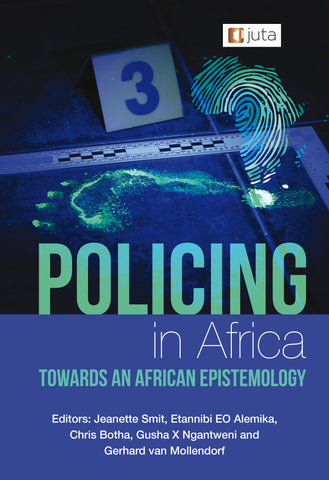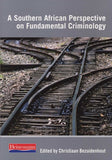
Policing in Africa Towards An African Epistemology
About this publication
Policing in Africa is often portrayed as being practised by incompetent and corrupt apologists for governing regimes. Professional policing, on the other hand, is the opposite of populist, incompetent, corrupt and regime-partisan policing. A professional police agency is dependent on solid competence acquired through learning interventions aimed at the type of police service delivery that will suit a democratic society and an adherence to human rights principles. Policing in Africa: Towards an African Epistemology aims to provide some knowledge towards the achievement of exactly that type of police service delivery.
In this book the authors present a dialectic of African preference and northern epistemology, and aim for synthesis between the two. The foundational epistemological discourses typical of African continental thinking on matters of community importance are the focal point. The book emphasises the strengthening of policing epistemology through research and people development. This, in turn, aims to bolster policing practices such as the prevention of crime through the ubiquitous quest for community partnerships, peace, conflict resolution and effective resolving of committed crimes.
Policing in Africa: Towards an African Epistemology is designed for studying and reflection. Learning outcomes guide, new terms enlighten, and critical thinking activities and case studies support reflection. The authors express the wish that this book will be of value to students, facilitators of learning, policy makers, oversight agencies, civil society organisations, libraries and communities in the broadest definition possible.
Content
Part 1: Foundational epistemological discourses for Africa
- Chapter 1: Historical perspectives on policing in Africa
- Chapter 2: Fundamental policing principles in an African context
- Chapter 3: Civilian oversight and police accountability in Africa
- Chapter 4: Legal aspects of policing in selected African countries
- Chapter 5: Ethics in policing: An African framework
- Chapter 6: Social disorganisation and crime
Part 2: African policing practices
- Chapter 7: Community and partnership policing
- Chapter 8: Peace-policing: Towards an African definition
- Chapter 9: Crime prevention revisited
- Chapter 10: Crime prevention in Nigeria and South Africa: A comparison
- Chapter 11: Conflict and conflict resolution
- Chapter 12: Harmonising transport legislation for crime prevention in the SADC region
- Chapter 13: Trafficking of women and children in Africa
Part 3: Resourcing African policing
- Chapter 14: Human resource management in policing
- Chapter 15: Physical resource management in policing from an African Perspective
- Chapter 16: Police-media relations Part 4: Strengthening African epistemology
- Chapter 17: Introduction to crime and police research
- Chapter 18: Police education and training
Answers to multiple-choice questions
Index
Interest / Benefit to
- Students
- Facilitators of learning
- Policy makers
- Oversight agencies
- Civil society organisations
- Communities in the broadest definition possible
We Also Recommend





